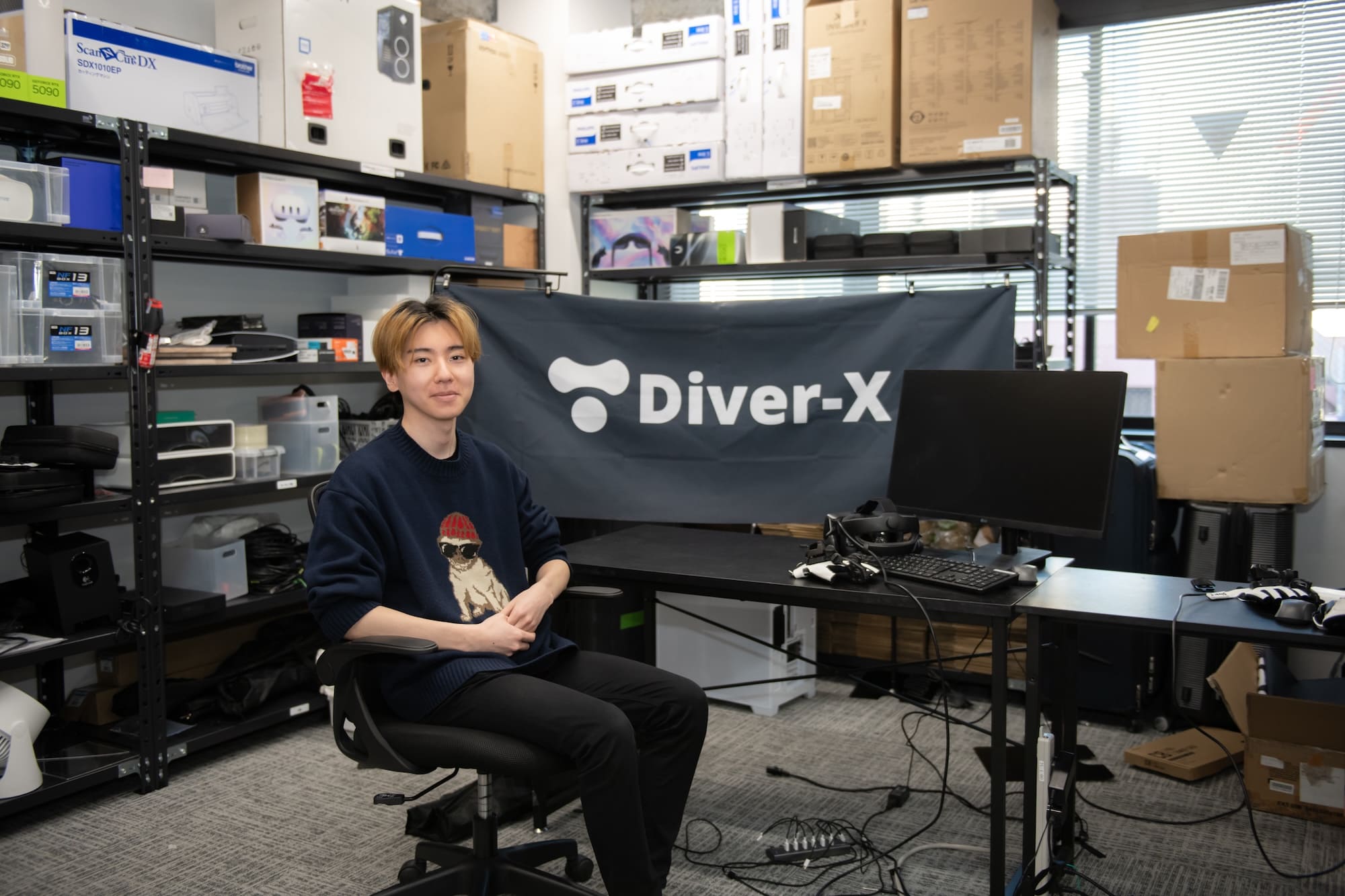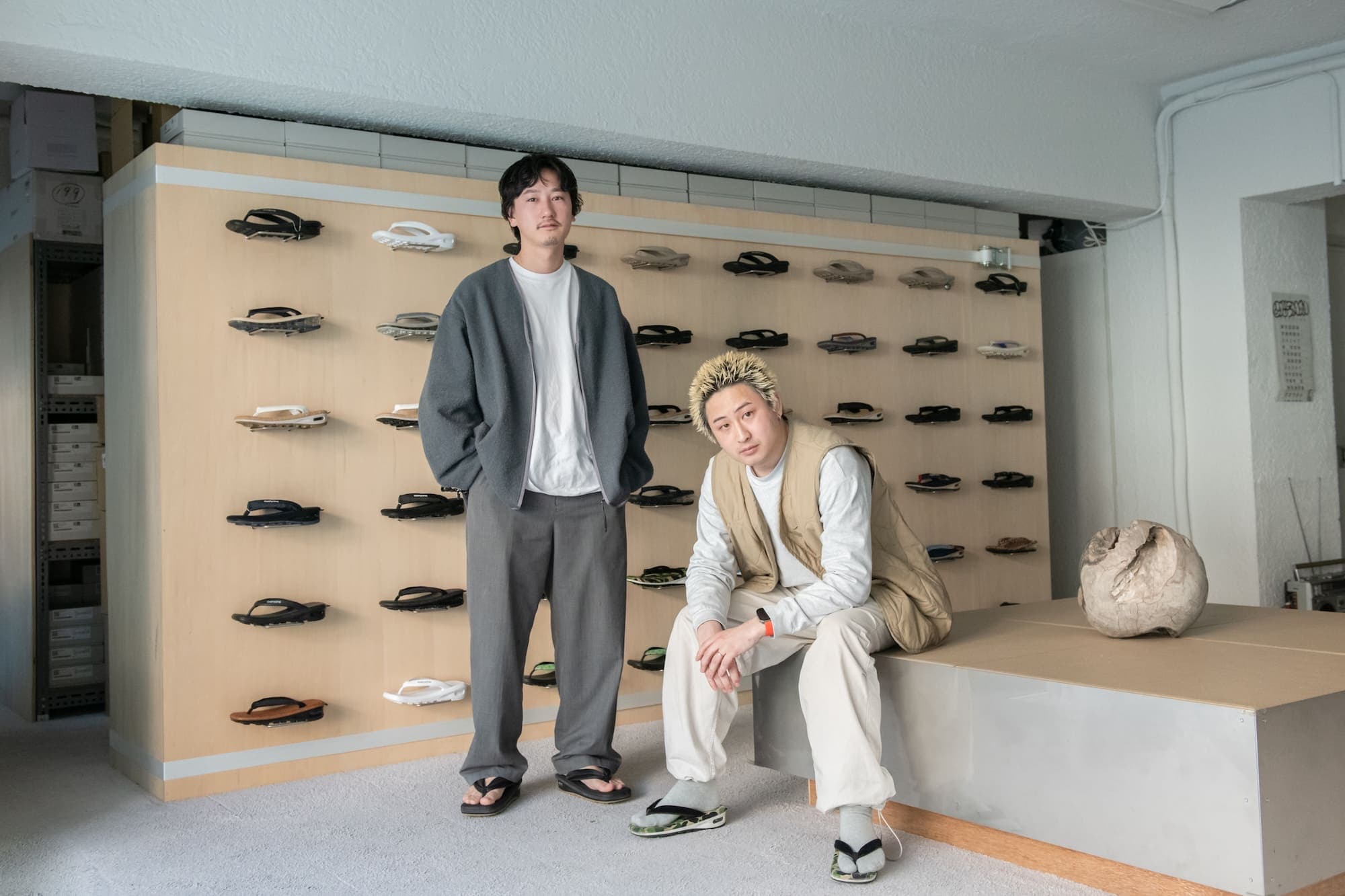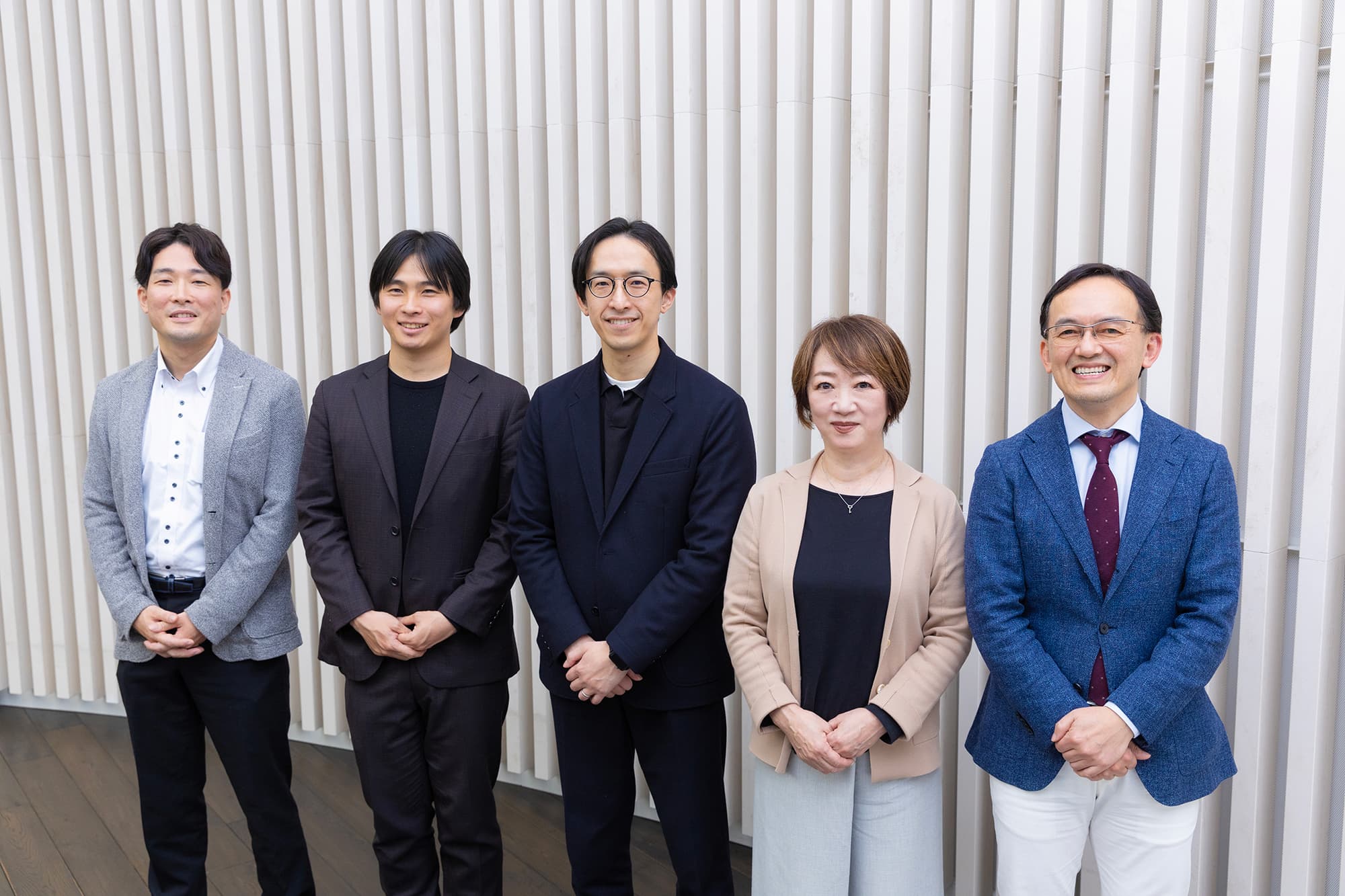【前編】Skype創始者、ニクラス氏に聞くスタートアップとグローバル動向

文:鈴木貴視 翻訳:Luke Baker 写真:依田純子
投資分野で活躍するニクラス氏。「成功したベンチャーのうち、シリコンバレーの企業は4割」と語る自身に世界の実情を聞く。
『Skype』の創業者にして、世界4大陸で50以上の企業に投資するAtomico共同創業者兼CEOであり世界屈指の投資家として活躍する二クラス・ゼンストローム氏が来日! 今回、IT分野の新規事業開発やベンチャー投資を専門的に行うリクルートテクノロジーインスティテュートの責任者・岡本彰彦が、現在の投資事情におけるさまざまな質問を用意。1回目は、シリコンバレーやスタートアップでにぎわう各地域の動向に迫る。
Niklas Zennström, co-founder of Skype and now one of the world's leading investors as co-founder and CEO at Atomico, visited Japan! Akihiko Okamoto, head of the Recruit Technology Institute, which specializes in venture capital, prepared a variety of for Niklas regarding the state of investing today. In this first part they cover Silicon Valley and regional trends among startups.
岡本彰彦(以下・岡本) ここ最近におけるAtomicoの見解として、シリコンバレー以外の地域から数多くのスタートアップが誕生してきている、というレポートを発表しましたよね。
Akihiko Okamoto (Okamoto): You recently released a report from Atomico stating that many new startups are emerging in regions outside of Silicon Valley.
ニクラス・ゼンストローム(以下・ニクラス) この10年の間に設立された10億ドル規模のインターネットやソフトウェア関連の会社を調べたところ、その6割はシリコンバレー以外の企業だと分かりました。1位はアメリカ、2位 は中国、そして3位は意外にもスウェーデン。この動きは一段と進んでいます。
Niklas Zennström (Niklas): When we investigated billion-dollar Internet and software companies founded within the last 10 years, we found that 60% of them were from outside Silicon Valley. America was number one, China number two, and actually Sweden was number three. This is an on-going trend.

岡本 なぜ、シリコンバレー以外の地域でそういったイノベーションが起きていると思いますか?
Okamoto: Why do you think this kind of innovation is occurring outside of Silicon Valley?
ニクラス まず『Skype』を創立した2003年を振り返ってみると、当時はサービスを作っても各国の言語に翻訳したりサーバー環境を揃えたり、世界中でプロモーションをしなければならなかった。でも今の開発者は、App storeやGoogle Playに直接ローンチすることができます。配布する方法を選ぶだけで、すぐに投資家や支援者と交渉を始められますよね。しかも今は、約17億人がスマートフォンを持っています。4年後には、中南米、中東、北アフリカやアジア全体などで更に10億人が増える見込みですが、そういったインターネットへアクセスする環境が変化したことも大きいと思います。
Niklas: For starters, looking back to 2003 when Skype was founded, we had people using our service, but we still had to translate it into other languages, get a proper server capacity, and promote it ourselves internationally. But, developers today can launch directly to the App Store or Google Play. All they have to do is choose the method of distribution, and then they can begin haggling with investors or backers right away. On top of that you now have nearly 1.7 billion people with smart phones. This number is expected to increase by another billion in four years in the Middle East, Latin America, North Africa, and all of Asia, so another bit factor this change in the way people access the Internet today.
成功が成功を呼ぶ、現代の収益構造のエコシステム
Modern ecosystems where success fuels success
岡本 起業する側の環境についてはどう思いますか?
Okamoto: What are your thoughts on the environment for entrepreneurs?
ニクラス 起業家というのは、アーティストやアスリートと同じく才能を持つ人たちです。この人たちが成功するには支援が必要ですが、世界3位のスウェーデン・ストックホルムでいえば、『Skype』が成功したことをきっかけに、『Spotify』、『Minecraft』、『Klarna』などが次々と生まれていった。つまり、成功が成功を引き起こすという収益構造のエコシステムが存在しているんです。
Niklas: Entrepreneurs a talented people just like artists or athletes. They need support in order to succeed, but if we use Stockholm in Sweden, which is number three the world, as an example, Skype's success opened the door for other successes like Spotify, Minecraft, and Klarna. In other words, there is an ecosystem there where success fuels success.
岡本 そのエコシステムというのは、どんな状況を生み出しているのでしょうか?
Okamoto: What sort of environment are these ecosystems creating?
ニクラス 例えば、私のように成功を手にした起業家が、次は投資家となって次世代の起業家に資金を支援する。コンピューターサイエンスやビジネスを勉強している学生たちの中には投資家が増えてくると、大企業に就職するよりもスタートアップやテクノロジー系企業でキャリアをスタートしたほうがいいと思う人がでてくるわけです。実際にストックホルムや北京、ロンドン、ニューヨークとサンパウロではそういった動向を最近よく見ますから。
Niklas: For example, successful entrepreneurs like myself go on to become investors who support the next generation of entrepreneurs. As the number of investors increases, students who study computer science or business might think they would rather start their careers at a start-up or tech company rather than a big corporation with these ecosystems. You see this trend a lot in Stockholm, London, Beijing, New York, or San Paolo lately.
岡本 シリコンバレーのスタートアップと、それ以外のエコシステムで設立されたスタートアップの違いは何だと思いますか? 確かに、各地域のスタートアップにもたくさんの投資が起きているのを見受けています。このように世界の各地から資本がたくさん来ているため、新しい投資の価値が希薄化されているではないかとも思います。
Okamoto: What makes start-ups from Silicon Valley and start-ups from other ecosystems different? We have definitely seen a lot of investment occurring in startups in other regions. Do you think capital coming from all over the world like this has diluted the value of new investments?

ニクラス シリコンバレーと他のテクノロジー系エコシステムの大きな違いをいうと、やはりシリコンバレーではテクノロジー自体が最も注目され、技術について話し合われているということです。しかし、ロンドンやストックホルムに行くと、話題の中心は「このビジネスはどうやれば既存の分野を変えられるか」に変わります。技術を通じて経済の分野を変換させる、という会話ですよね。それが大きな違いではないかと思います。
Niklas: The big difference between Silicon Valley and other tech ecosystems is that in Silicon Valley they focus most on the technology itself. All the talks are about technology. But, if you go to London or Stockholm, the topic changes to how the business can change and existing sector. Like, how can we use technology to revolutionize finance? That's the big difference in my mind.
ファンドが狙う、シリコンバレー以外の新たな可能性
New potential outside of Silicon Valley that funds seek
岡本 シリコンバレー以外の新興起業は、どんなことを意識しているんでしょうか?
Okamoto: What do startups from outside of Silicon Valley need to think about?
ニクラス 他の地域のテクノロジー系のエコシステムの状況を見ていると、アメリカで成功することより、どう展開すればグローバルな企業になれるかを考えています。私も、人口が約900万人のストックホルムという小さな市場からスタートしました。やはり小さな国で会社を設立する起業家は、できるだけ早い段階からグローバルに展開したほうが良いと思います。
Niklas: If you look at tech ecosystems in other regions, you can see that the entrepreneurs there are thinking of how they can go global rather than just how they can succeed in America. I also got my start in Stockholm, which is a small market of just 9 million people. Entrepreneurs who found companies in small countries should try to go global as early as possible.

岡本 とはいえ、アメリカの市場は巨大ですし、シリコンバレーには豊富な資本を持ったファンドと繋がりやすい環境があると思うのですが。
Okamoto: But America is such a massive market, and in Silicon Valley it's very easy to connect with investors who have large amounts of capital.
ニクラス テクノロジー系の企業は長く民間企業のまま残ることが多いので、どんどん値段が高くなってしまいます。しかし、欧州や中南米などでは、そのような現象はあまり見ないのです。というのも、それら地域のファンドというのは、常に将来的な可能性がある事業や技術を狙っているもの。そういった意味も含めて、シリコンバレー以外の新興エコシステムにとって優位な点は、これからもまだまだあると思います。
Niklas: Most tech companies stay private for a relatively long time, so the price tends to keep increasing. But, you don't see that as often in Europe or Latin America. One of the reasons for this is that the investors there are always looking for businesses or technology that has future potential. In that sense, I think we will continue to more benefits to the ecosystem for startups outside of Silicon Valley.
プロフィール/敬称略
- 二クラス・ゼンストローム
- Niklas Zennström
-
Atmico共同創業者兼CEO。1966年、スウェーデン生まれ。スウェーデンのウプサラ大学にてビジネスおよび工学物理学/コンピューターサイエンスの理学修士号を取得。最終学年はミシガン大学に在籍。テクノロジーベンチャーキャピタル会社アトミコの共同創業者兼CEO、投資家。過去に『Skype』『Kazaa』『Joost』『Joltid』社など数々のテクノロジー企業を立ち上げる。2005年に「Skype」は31億ドルでeBayに買収され、その後はニクラスを含む投資家グループに再売却。2006年に、米タイム誌が選ぶ世界で最も影響力のある100人「タイム100」に選出。同年、アトミコを創業。以来、世界4大陸に50以上の企業に投資を行ってきた。2011年には、マイクロソフトが「Skype」を85億ドルで買収。2011年には英オックスフォード大学インターネット研究所より特別功労賞を受賞。バルト海の環境を改善し、社会起業家を応援する「Zennström Philanthropies」を創設。2012年に、日本拠点を開設。
Co-founder & CEO of Atomico. Niklas Zennström was born in Sweden in 1966. He obtained a master's degree in business, engineering physics, and computer science from Uppsala University. He spent his final year of college at the University of Michigan. Niklas is now an investor as well as the co-founder and CEO of Atomico, a technology venture capital firm. He is also the co-founder of several other technology companies such as Skype, Kazaa, Joost, and Joltid. Skype was purchased by eBay for $3.1 billion in 2005, but was later bought back by Niklas and a group of investors. In 2006, Time Magazine chose him for their Time 100 list of the 100 most influential people in the world. Niklas would then found Atomico the same year. Since then Atomico has invested in more than 50 companies on four continents. Microsoft would later purchase Skype for $8.5 billion. In 2011, Niklas received a Lifetime Achievement Award from Oxford University's Oxford Internet Institute. He works actively to improve the state of the Baltic Sea and has also founded Zennström Philanthropies, which supports social entrepreneurs. Niklas opened a Japanese base of operations in 2012.
- 岡本彰彦
- Akihiko Okamoto
-
株式会社リクルートホールディングス リクルートテクノロジーインスティテュート組織長 投資開発室 室長。2007年入社。金融事業設立準備、SUUMOにおける事業開発責任者を経て2011年よりグローバル新規事業開発とコーポレートベンチャーキャピタルファンドを担当。 累計85億円の投資資本を活用して、35社への出資、4社の海外JV設立を指揮。2014年4月より現職。リクルート入社以前は、銀行、ベンチャーキャピタル、証券会社などで新規事業開発等に従事。
Head of Recruit Holdings' Recruit Technology Institute and Investment Development Lab. Akihiko Okamoto joined Recruit in 2007. In 2011 he was placed in charge of new global business development and corporate venture capital funds after overseeing business development at SUUMO. He has invested a total of 8.5 billion JPY in 35 companies and directing the founding of 4 international joint ventures. He is actively involved in new business development at securities companies.





